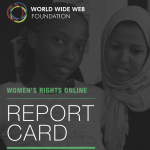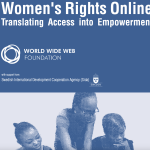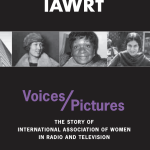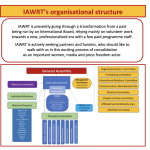Women’s Rights Online Report Card

The Web Foundation and partners have prepared these gender audits to help countries assess what they need to do to overcome the gender digital divide. International Association of Women in Radio and Television has taken the lead, in consultation with other national stakeholders, on identifying concrete steps that government can take in the next year to address the challenges and gaps identified. We hope that this report card and action plan will spark debate and galvanise policy change.
Women’s Rights Online Translating Access into Empowerment

This report explores the real extent of that divide in nine cities across nine developing countries, in order to gain a better understanding of the empowering potential of ICTs as a weapon against poverty and gender inequality, and the barriers that must be overcome to unlock it. Research was designed and carried out in close collaboration with leading national civil society organisations in the countries we studied.
The story of International association of women in radio and television

Voices/Pictures is the story of how women began to speak in the broadcasting history. When the Dutch radio journalist and economist Lilian van der Goot in the aftermath of World War II brought together colleagues from countries that had been fierce enemies, allies or neutral, she was convinced that a woman’s voice can serve mutual understanding. The International Association of Women in Radio and Television has grown from these roots into a world wide network with over 300 members in over 50 countries. This book tells the story of sixty years of foresight, struggles and achievements.
Strategic Plan 2020 – 2024

IAWRT operates within a vast network of international and national like-minded organisations and has a consultative status with the United Nations Economic and Social Council (ECOSOC). IAWRT recognizes that to achieve gender equality in all spheres and all societies, media and communication play a central role, challenging the social and cultural norms that hinder progress towards gender equality. In our work to achieve the goals set out within our priority work themes in this strategic plan, we will among others engage in the Beijing+25 process to ensure global impact and effective collaboration with like-minded organisations
A Media Campaign for Tolerance in Journalism.
The move meant to help the journalism community push back against editorial practice that can reinforce stereotypes, ignore the reality of violence against women at work and home that restricts progress towards genuine respect for gender equality at all levels of society. The workshop came as a continuation of the Turning the Page of Hate Campaign initiated in Kigali in April last year, and followed up in Kampala in May 2014.
In recent years, Tanzania has had some incidences indicating that the culture of political and religious tolerance is fading away amid threats to the media fraternity where members of the press have been under siege while on duty. The past three years have seen several journalists injured, with one killed while on duties by law enforcing organs. Thus, the session came timely ahead of the General elections slated for October 2015.
